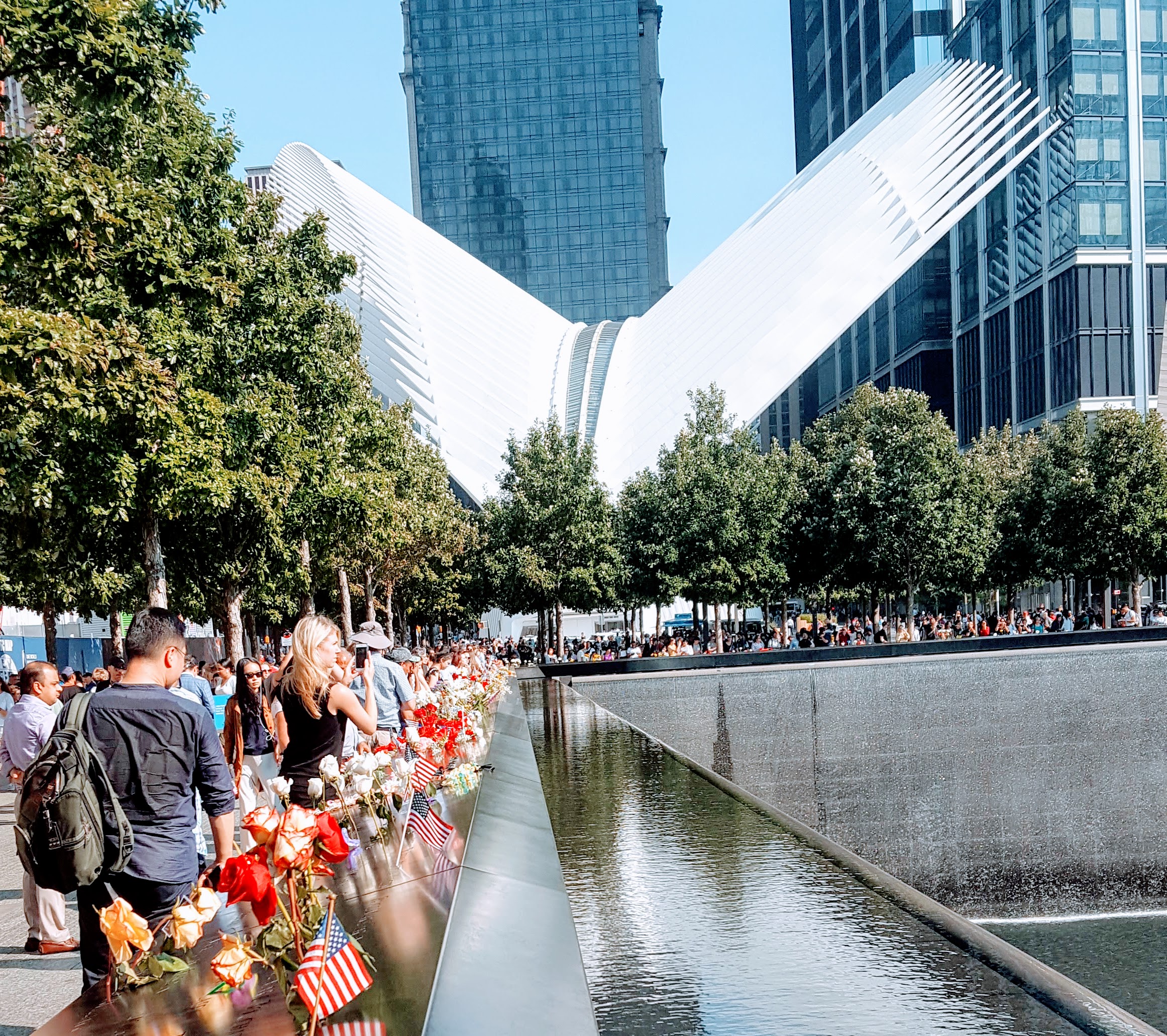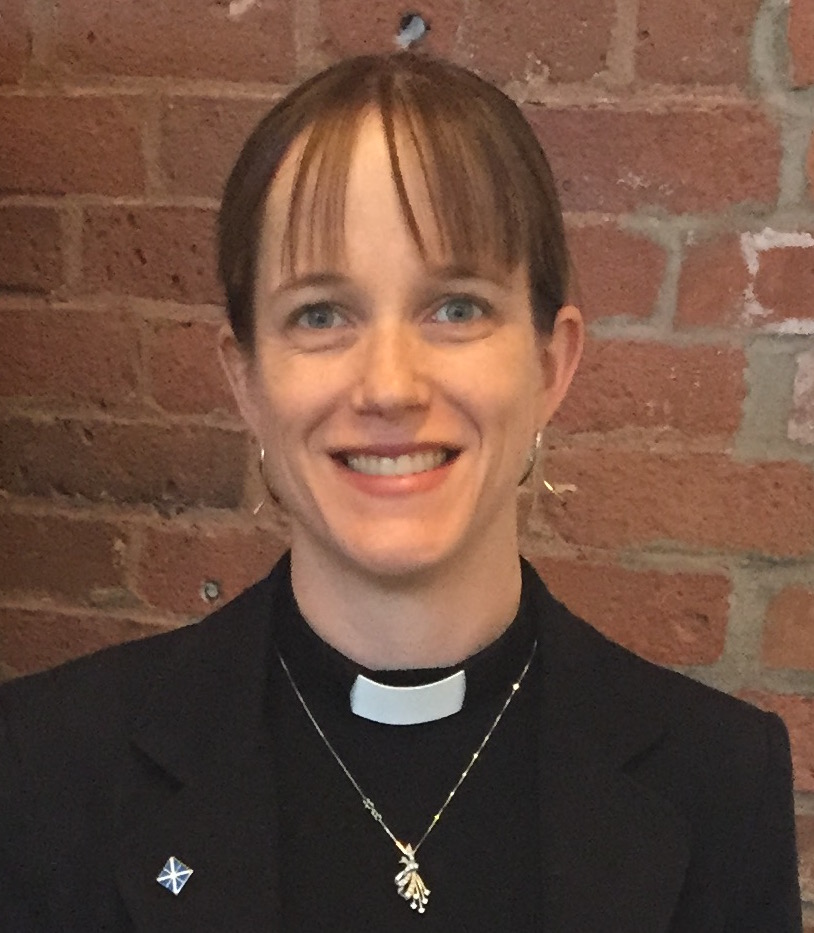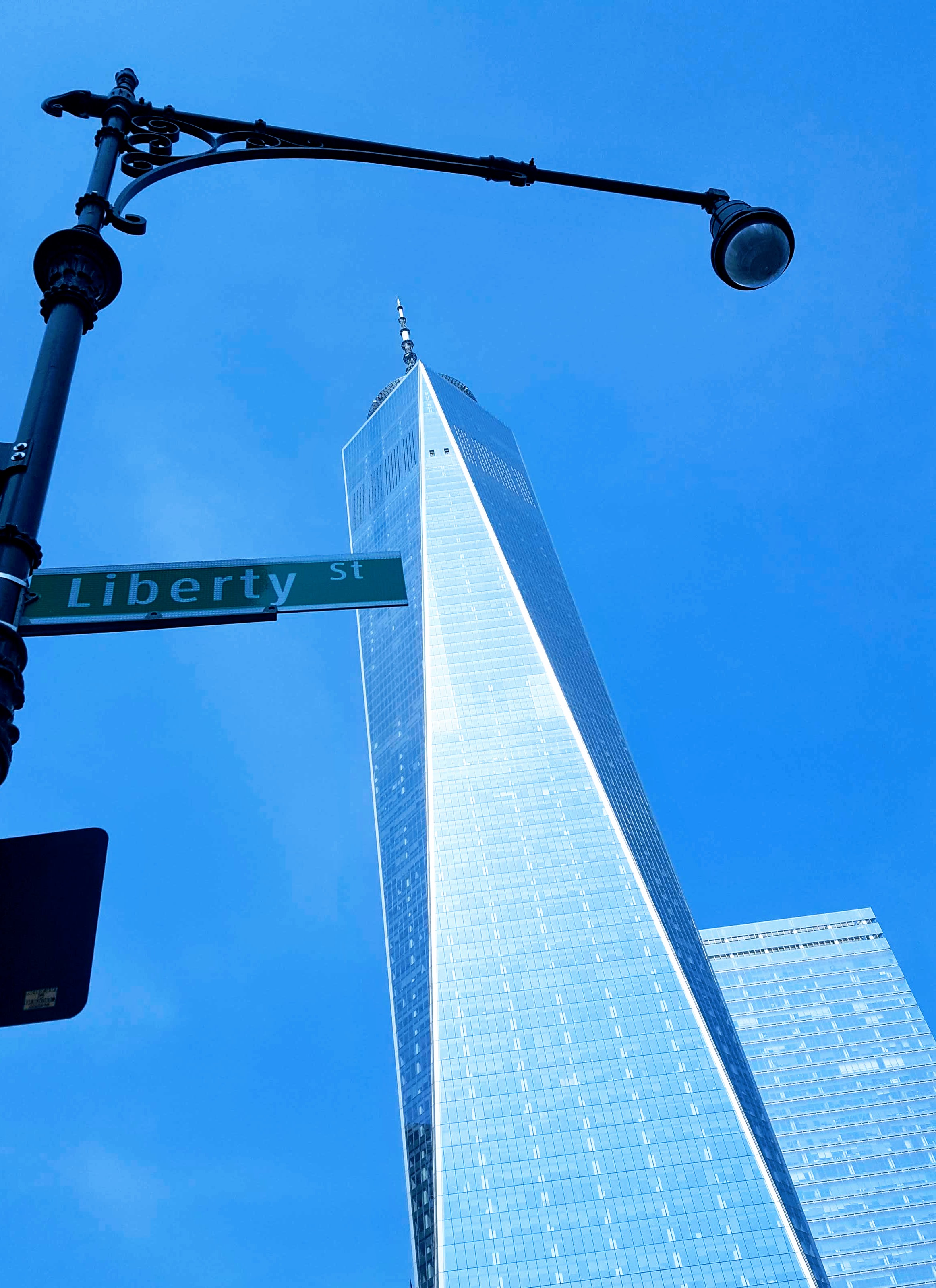I very rarely cry. But yesterday, as I walked through the 911 Memorial in Manhattan, I cried.
It’s been 18 years since the attacks, but our country will not forget the tragedy of that day in September.

Meanwhile, we have also been forced to confront an escalating sense of crisis and desperation. Loneliness is an epidemic, suicides are on the rise, and last month began with two mass shootings. I spoke with Reverend Molly F. James, PhD about how the country can move forward.

Are you hopeful about our future?
There are days when hope can seem so very elusive. Children are being kidnapped from their parents. There has been another school shooting. A storm is ravaging through a landscape that is already weary from another natural disaster. Our political divide is growing deeper. The gap between the rich and the poor continues to widen. The rates of mental illness in young people seems to only be going up.
There is no shortage of news stories that bring down our mood. Add to that the challenges of our own personal lives – if we are struggling with grief, unemployment , or just unable to find our personal or professional lives to be as fulfilling as we would like, then it can be enough to send us into a downward spiral and make us wonder where the hope is.
Where can we find hope?
It can be tempting to think that hope has to come from outside, from beyond ourselves. And to a certain extent that is true. It would indeed be much easier to be hopeful if there were no global warming, no school shootings, no political disagreements, no poverty, etc. But we do not live in that world. Not yet anyway. So we have to take some ownership. Finding hope, living with hope, believing in the possibilities of the future, is in fact something over which we can have a fair amount of control.
I believe our hope comes from two main sources: our beliefs/values and our ability to maintain perspective in the midst of challenges. For me, hope is a default. It is my baseline.
Have you ever felt hopeless?
Whenever I need a sense of hope, I seek God’s restoring, reconciling love and I constantly find in my life that light wins over dark. The defining story that shapes how I view the world and my own experiences is a story that is all about how new life can arise out of the most horrible tragedies.
I was forced to confront my own mortality at the tender age of 13 when I received a cancer diagnosis. Though my family and I were terrified, we were surrounded by countless caring, compassionate, and inspiring people who have helped make me the person I am today. I survived as evidence that good will overcome bad.
This happens in the big experiences, and it happens in the everyday moments too. I feel overwhelmed by the headlines, but then I go to pick up our son from school and his joy is infectious. Or I watch our daughter patiently teaching him some new skill, and my hope is restored.
Do you have faith in humanity, in general?
If I am paying attention, the fundamental goodness and shared morality of humanity is brought home to me on a regular basis. Indeed, there are helpers everywhere, everyday. Looking for them is especially helpful and meaningful in the midst of tragedy. Think of how inspired we all are by the first responders who rushed into the Twin Towers on 9/11. Or of the outpouring of care and support that came from all over the world to the little town of Sandy Hook in the wake of their school shooting. When push comes to shove, we witness that humanity is fundamentally good. Our instincts are to be helpers.
But this goodness is not just for times of tragedy. It is all around us, everyday. Most of the things we take for granted – the internet, transportation, access to food and water, etc – all of these thing happen and generally run smoothly because people take pride in their work and care about what happens. If they didn’t, we would not be able to email or have abundant produce in our grocery stores. If people were really programmed to be mean, selfish, and malicious, the world would be in a far worse state.
Is it possible for people of different faiths to work together?
There was one day in my studies when this was particularly evident to me. I was in an ethics class having a conversation with a man from Africa, a man from Singapore, and two women from Syria. We were three Christians and two Muslims. We were discussing the fundamental ethics of our own faith traditions. There were lots of ways (Christian denomination, gender, race, ethnicity, cultural context, socioeconomic status, etc) that we were different, and yet what we agreed upon in that conversation was how much our beliefs systems were aligned.
We believed that human beings should treat each other with kindness and decency. We believed that lying and cheating were wrong. Murder is wrong. We believe that people have the right to a life where their basic needs are met and access to education. As C.S. Lewis theorized, there is a Common Morality — A shared set of principles that transcends culture, religious expression and time. Like it does for Lewis, this points me to a belief in God. It may not do that for everyone.
Can we be a source of hope for one another?
The other place I find hope is in the lives of my fellow human beings. Of course I find this in my work (I am a priest who works for The Episcopal Church). My job means everyday I get to interact with lots of people who are doing their small part to build up the Kingdom of God and make the world a better place. I also find this in my volunteering too. One new group (Yale Alumni Nonprofit Alliance) with whom I have become involved that gives me particular hope for the future is an alumni group of Yale University. I happened into it through an alumni email notice (I went to the Divinity School). I worked a bit at the local level, and now I am on the National Board. I am continually inspired to be a part of this organization. It is filled with smart, committed people who are united by a shared desire to do good in the world. They are living out that wonderful Margaret Meade quote about the power of a small group of committed people.
Now, I suppose you could be cynical about a group of Yalies seeking to do good in the world. Isn’t that a bit of noblesse oblige? Isn’t that just more powerful elites seeking notoriety for their philanthropy. Yes, Yale is by definition and its history an elite institution. Is there some reckoning that needs to happen around that? Absolutely. And the University is working on this on lots of fronts. And it is also true that not everyone who went to Yale is a blue-blooded WASP from old money. And it is also worth noting that the “prestige” of a Yale education, the global reach of its alumni network, and the fact that Yale can claim connections to lots of movers and shakers in the world, means that when a bunch of Yalies work to do something, big things can happen.
The Yale Alumni community (which is becoming more diverse every year) has the power to make a fundamental and transformational impact on the world. We are a community that can and should make a difference. And we will have a far bigger impact if we are working together. That is why YANA exists – to be a connector, to be a catalyst and to make collaboration possible. Real change is possible. Real change is happening. Because of who we are and what we believe. And because people with all different kinds of resources who care about the world we live in and our fellow human beings are working to bring about change.

Thank you for sharing your story.
The Rev. Molly F. James holds a PhD in Theology from the University of Exeter (UK). She holds a Master’s of Divinity from Yale Divinity School and Bachelor of Arts in Psychology from Tufts University. She grew up in Maine and was ordained by The Rt. Rev. Chilton Knudsen in 2005. She has served on the Bishops’ Staff in CT, as a parish priest, and a hospital chaplain. Prior to joining the staff of the General Convention Office, Molly served on various churchwide committees and as a deputy to General Convention for The Episcopal Church. She also serves as an adjunct professor at Hartford Seminary and the University of St. Joseph, focusing on ethics and pastoral care. Her doctoral research focused on suffering and grief. Her work, With Joyful Acceptance, Maybe was published in 2013 by Wipf and Stock. Molly has previously served as co-chair of Young Clergy Women International (an ecumenical organization of clergy women under 40), and as a board member for the Society of Scholar Priests. Molly and her husband Reade, a mechanical engineer, have two children.


